温家宝被美新闻周刊评为“爱民领导人”
http://www.sina.com.cn 2010年08月19日 15:17 新浪尚品
日前美国《新闻周刊》评选出全球最受瞩目的十一位杰出领导人,中国总理温家宝榜上有名。温家宝总理因其在数次国内重大自然灾害及经济方面的优秀表现而被评为“爱民领导人”。
富有雄心壮志的新人——英国首相卡梅伦
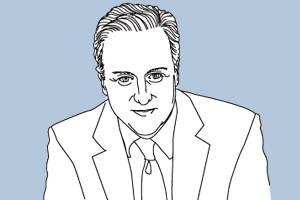
当在三个月前就职时,英国屏住了呼吸。他是英国一个世纪多以来最为年轻的首相,从未处理过政府事务。43岁的他继承了一个脆弱的经济、一场不得人心的战争、一个对政客们感到厌倦的国家。不过,他处理预算赤字的大胆计划已平稳了市场,他充满信心的姿态给其他国家的领导人留下了深刻印象。他平静的管理风格在首相府也受到欢迎。他在选民中的满意率也上升至近百分之五十。不同政治派系的分析人士都对他的大胆表示赞扬。
环境保护专家——马尔代夫总统纳西德
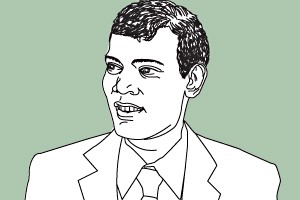
作为一个受到不断上升海平面威胁国家的总统,已成为环境保护人士眼中的英雄。在去年联合国气候变化大会召开之前,他主持的水下内阁会议吸引了全球的关注。他在哥根哈根承诺要让马尔代夫成为世界首个碳中立国家。他今年四月被联合国选为“2010年地球卫士”。
在海外得到热爱在国内遭痛恨的总统——法国总统萨科奇
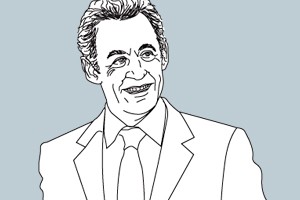
法国总统萨科齐可能是世界上最伟大的领导人之一,但他在国内的支持率非常低。内部争斗和丑闻困扰着他的内阁。失业率已超过了百分之十,经济恢复仍然贫血。但当萨科齐获得一个更大平台上进行表演的机会时,他的能力就会得到发挥。他明年将主持八国集团和二十国峰会,伊朗和经济衰退将是他必须要处理的议题。
关爱人民的领导者——中国总理温家宝
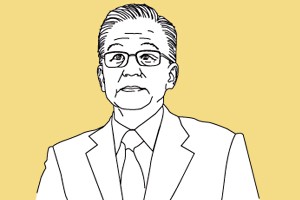
中国总理温家宝被誉为是一位有心的领导人。在慰问2008年四川地震的幸存者时,温家宝公开流泪。今年八月初,人民再一次看到了他和群众心连心,他飞往边远省份甘肃,在泥石流的废墟上向困在暴雨中的村民大声喊话,给他们以鼓励。温家宝总理还致力于缩小中国贫富差距的鸿沟。难怪中国普通老百姓如此喜欢“温爷爷”。
金融问题解决者——爱尔兰总理考恩
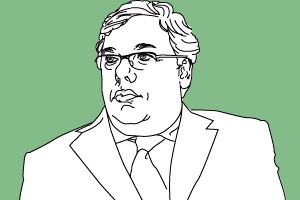
当爱尔兰一度快速增长的经济由于银行危机而陷入停滞时,爱尔兰总理考恩和他很有能力的财政部长布赖恩-科恩下了猛药。他们推出了经济紧缩一揽子方案情,提高税收,将公职人员的工资下调了百分之十。
冬天的狮子——巴西总统卢拉
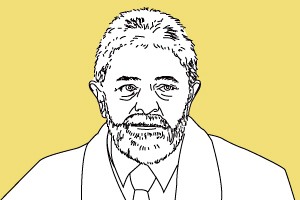
在巴西总统卢拉准备离职之际,他在国内仍享有摇滚巨星的受欢迎度和海外的红地毯。巴西在卢拉2002年当选总统之前就具备崛起的潜力,但这位前工会领导人明智地意识到,商业是盟友而非敌手。在卢拉的领导下,巴西已从发展中国家的差等生成为新兴市场发动机。
CEO式的总统——韩国总统李明博
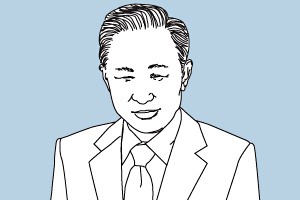
全球金融危机为韩国总统李明博的管理才能提供了一个机会。李明博利用他前现代CEO所获得的经验领导韩国度过风暴,大幅降低利率至历史低点,建立基金以帮助遇到困难的银行和公司,达成贸币互换协议以确保不断降低的外汇储备。
重建者:利比里亚女总统埃伦-约翰逊-瑟利夫
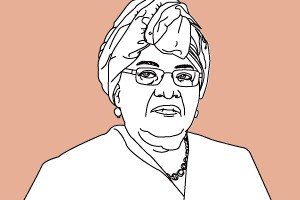
当埃伦-约翰逊-瑟利夫2005年当选利比亚总统后,她面临是一个因多年战乱而遭到重创的国家。在五年过去后,驻利比时亚的联合国部队已不足8000人,学生的入学率上升了百分之四十,城市中心的电力和自来水得到了恢复,木材业和钻石业出现繁荣局面,外债也由2006年的49亿美元减少至今天的17亿美元。
改革者:沙特国王阿卜杜拉
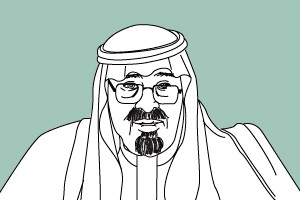
自2005年登基以来,沙特国王阿卜杜拉已使学校现代化,任命女性出任高官,投资于科学、技术、教育和核能倡议。他还被证明是反对伊斯兰极端主义的坚定力量。
中间人——新加坡总理李显龙
世界增长最快经济的掌舵者李显龙是危机处理的行家。在全球金融危机发生前,大多数新加坡金融机构避免了不良资产,从而躲过了金融业冲击。全球信用等级保险商现在称,新加坡是在亚洲作生意最安全的地方。在外交政策方面,李显龙设法与地区的各大强国建立了友谊。
点石成金者——蒙古总统额勒贝格道尔吉
蒙古总统额勒贝格道尔吉知道他坐在金矿上。蒙古自然资源丰富,分析人士称,由于蒙古的矿产资源大多数仍未开发,蒙古在未来十年将成为经济增长最快的国家。额勒贝格道尔吉希望利用他丰富的资源来帮助开发他的国家。他已采取措施确保蒙古人民将从发展中受益。
When David Cameron took office three months ago, Britain held its breath. The country's youngest prime minister in more than a century, untested in government, the 43-year-old inherited a fragile economy, an unpopular war, and a country fed up with politicians. But his drastic plans for tackling the budget deficit have soothed the markets, and his assured manner has impressed fellow heads of state--even in the European Union, normally tricky territory for a British Conservative. His calm managerial style also makes a welcome change at Downing Street after volatile predecessor Gordon Brown. As a result, Cameron's satisfaction rating among voters has climbed to almost 50 percent, and analysts across the political spectrum are hailing him for his daring: "He is showing himself as potentially the best all-round prime minister of the modern era," says Guardian columnist Martin Kettle. Britain can breathe easy, for now。
As president of an island nation imperiled by rising sea levels, Mohamed Nasheed has become a hero among environmentalists. In the run-up to last year's United Nations climate-change meeting, Nasheed attracted global attention by hosting a cabinet meeting underwater. In Copenhagen, he shamed rich governments by pledging to make the Maldives the world's first carbon-neutral nation. Al Gore likes to quote him on the human cost of climate change. And in April, the U.N. elected him one of six "2010 Champions of the Earth." Achim Steiner, director of the U.N. Environment Program, praised Nasheed as a politician "who is showcasing to the rest of the world how a transition to climate neutrality can be achieved and how all nations, no matter how big or small, can contribute."
French President Nicolas Sarkozy may be one of the world's great leaders, but at home his approval ratings are dismal. Intramural sniping and scandals plague his cabinet. Unemployment has topped 10 percent; economic recovery is anemic. But give Sarkozy the chance to perform on a bigger stage--heading the European Union, as he did in 2008, for instance--and suddenly he's right in his element. Back then he took the lead on everything from fighting Somali pirates to brokering an end to war between Russia and Georgia. Next year, Sarko will host both the G8 and G20, with Iran and the recession on his to-do list. He's expected to push for more regulation of financial markets and a new international monetary system. Once again, all the world will be his stage。
Chinese Premier Wen Jiabao has earned a reputation as a leader with a heart. Speaking with survivors of the massive 2008 Sichuan earthquake, Wen openly wept. In early August, his empathy was once again on display when he flew to the site of deadly floods in remote Gansu province and shouted encouragement to villagers trapped by the heavy rains. The premier has also dedicated himself to reducing the country's yawning rich-poor gap. No wonder ordinary Chinese seem truly fond of "Grandpa Wen."
With Ireland's once-roaring economy staggered by the banking crisis--unemployment is at 13 percent, emigration is rising, and the money markets rank Ireland not far behind Greece on the list of Europe's big-time losers--Prime Minister Brian Cowen and his able finance minister, Brian Lenihan, are prescribing harsh medicine. They've pushed through austerity packages drastic enough to win the admiration of the international community, raised taxes, and slashed some public salaries by more than 10 percent. But the Irish aren't showing much gratitude--Cowen's ratings have plunged to a mere 18 percent, and his Fianna Fail party can expect a drubbing in the 2012 national elections. Still, there's some hope that his government's unpopular measures will be rewarded in the long run: surveys suggest that Irish consumer confidence is on the rise again, and the economy notched up modest growth in the first quarter of 2010.
As Brazilian President Luiz Inácio Lula da Silva prepares to leave office, he still enjoys rock-star status at home and red carpets abroad. Granted, Brazil was poised to rise before Lula's 2002 election. But the former union boss was wise enough to recognize business as an ally rather than an enemy. Under Lula, Brazil morphed from the developing world's chronic underachiever to an emerging-market powerhouse. With a stable economy, clean-burning biofuels, giant new oil fields, a rising middle class, and falling inequality, Brazil today seems to have it all. While some critics now claim glory has gone to Lula's head—citing his recent overtures to demagogues such as Hugo Chávez and Mahmoud Ahmadinejad—Lula has remained essentially a pragmatist, savvy enough not to gamble his country's newfound fortunes on a populist adventure. As a result, Brazil has soared on his watch. And in politics, that's all that counts。
The global financial crisis provided a showcase for South Korean President Lee Myung-bak's management skills. Drawing on his experience as a former Hyundai CEO, Lee guided Korea Inc. through the storm, slashing interest rates to historic lows, setting up funds to save troubled banks and companies, and striking currency-swap deals to secure dwindling foreign-currency reserves. The result: the fastest economic recovery among OECD nations, and forecasts of 5.8 percent growth in 2010 (the highest rate among developed economies). His talent will again be on display at the upcoming G20 summit in November in Seoul, which South Korea will host and chair. Given that the summit's main purpose is to prevent another global economic crisis, Lee's skills will surely be in high demand。
When Ellen Johnson Sirleaf was elected Liberia's president—and Africa's only female head of state—in 2005, she inherited a country decimated by years of violence. Between 1989 and 2003, two horrific civil wars had killed as many as 250,000 of Liberia's 3 million people, and displaced thousands more; more than 15,000 U.N. peacekeepers were deployed on the ground to maintain a fragile peace. At the time of her election, Sirleaf—who held positions at the World Bank and the U.N. before her political run--told NEWSWEEK, "I'm most concerned with being a mother to Liberia. I want to heal the deep wounds of this nation." Now, five years later, fewer than than 8,000 U.N. troops remain in Liberia. The country has boosted school enrollment by 40 percent, restored power and running water to urban centers, and turned its timber and diamond industries into thriving—and legitimate—trades. Sirleaf has also slashed Liberia's external debt from $4.9 billion in 2006 to $1.7 billion today. Under her leadership, Liberia is a country rebuilt and reborn。
Since taking the throne in 2005, Saudi Arabia's King Adullah bin Abdel Aziz al-Saud has tried to lift his ultraconservative country from the dark ages. He's given the go-ahead to modernize schools, has appointed women to high office, and invested in science and technology education and nuclear power initiatives. He's also proven a stalwart ally against Islamic extremism, delivering a much-applauded speech in Mecca that called on Muslims to embrace "the spirit of tolerance, moderation, and balance." At 86 years old, the monarch's window for change may be short, but he's still going strong。
The steward of the fastest-growing economy in the world, Singapore's Prime Minister Lee Hsien Loong is a master at risk management. In the lead-up to the global financial crisis, Singapore's institutions mostly avoided troubled assets, saving the country the banking shock that hit other nations. Global credit insurers such as France's Coface now rate Singapore as the safest place to do business in Asia. In foreign policy, Lee's managed to carve out a role as friend to all the big powers in the region. China wants to emulate Singapore's feat of liberalizing the economy while maintaining one-party rule. And Lee's close political and economic relationship with Beijing has given him the room to do things that might otherwise rankle China. This April, he pushed Beijing to allow the yuan to strengthen. He also just announced free-trade talks with Taiwan. If Singapore can manage to reduce tensions with its immediate neighbors, Malaysia and Indonesia, expect a decade or more of smooth sailing for the country under the indomitable Lee。
Mongolian president Tsakhiagiin Elbegdorj knows he's sitting on a gold mine. His resource-rich country boasts the world's largest underdeveloped copper and gold lodes, the world's second-largest uranium reserves, and huge coal deposits. Thanks to this mostly untapped mineral wealth, analysts from Eurasia Capital and Renaissance Capital predict Mongolia will be the fastest-growing economy of the next decade (the IMF predicts the fourth-fastest). Elbegdorj is intent on using this resource wealth to help develop his country, still one of the poorer nations in the world. He's sent officials to Chile to study how to keep resource profits in-country. And he's assured that Mongolians will benefit from developments: at the Turquoise Hill gold and copper mine, which is expected to account for more than 30 percent of Mongolian GDP when completed, Mongolians will have a 34 percent stake in the project. While it's too early to tell whether Elbegdorj will be able to stave off the resource curse that befalls so many economies, the outlook is certainly promising。
(新闻周刊)
(解雨)
